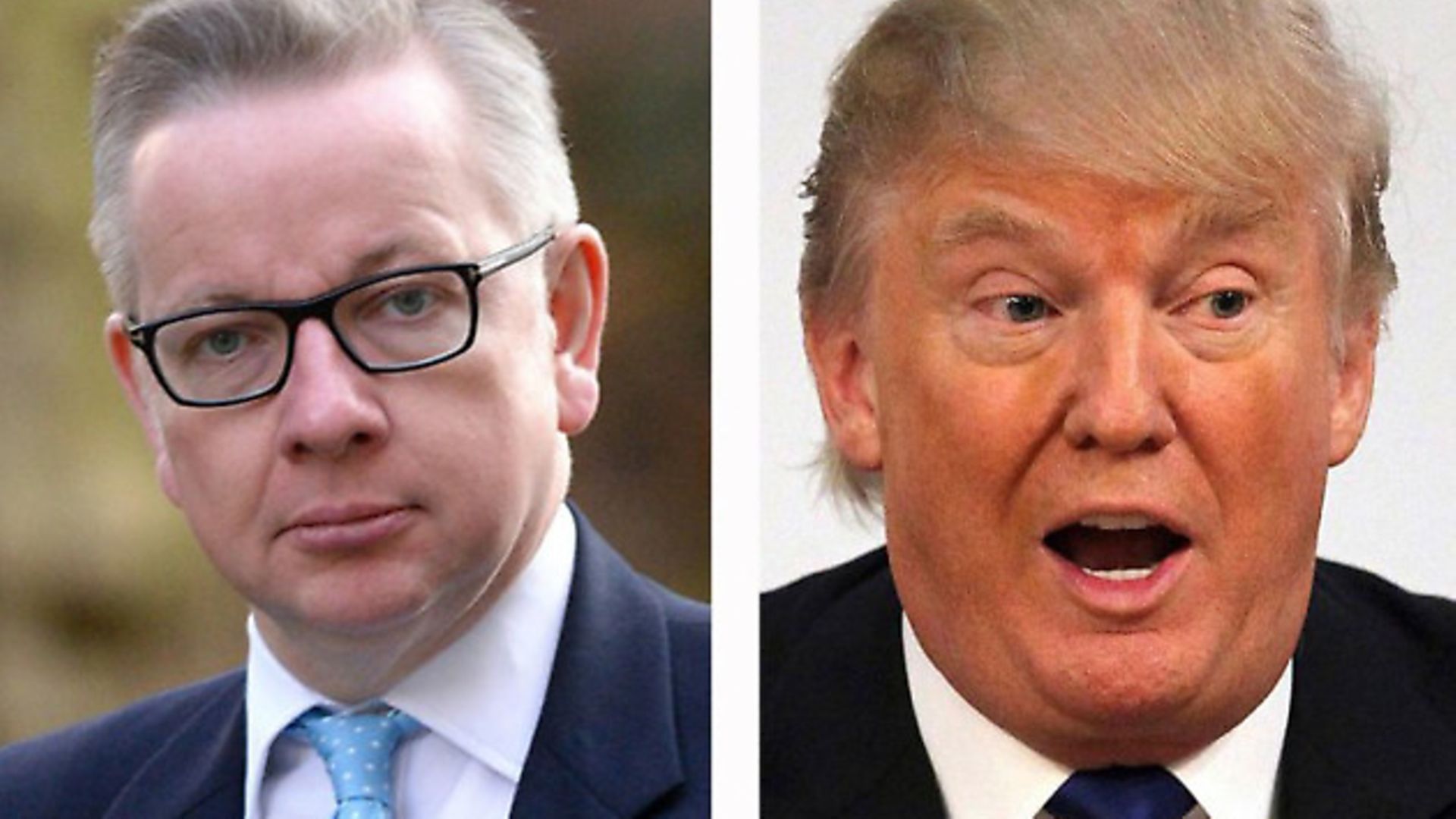
Are we safe with a pro-Putin, anti-EU, NATO-sceptic in the White House?
Will the president-elect’s promised trade deal really be quick and fair? And are we safe with a pro-Putin, anti-EU, NATO-sceptic in the White House? These are the two main takeaways from Donald Trump’s interview with Michael Gove.
Trump said: ‘We’re gonna work very hard to get it done quickly and done properly. Good for both sides.’
But there are a host of reasons to doubt a deal will be done quickly.
This article originally appeared on InFacts
Britain can’t legally negotiate trade deals until it actually quits the EU, which won’t be before 2019. Even then, it may not make sense for us and America to pin down trading terms until our own long-term deal with the EU has been clinched – and that may take several more years. What’s more, negotiating ambitious trade deals normally takes ages, even with the best will in the world, because of the complexity of the topic and the need to balance multiple competing interests.
There are also reasons to be sceptical over whether any deal we reach with Trump will be a fair one. The president-elect may now feel warm and cuddly towards Brexiters, whom he sees as kindred spirits. But when and if talks begin, they will be driven by cool commercial calculations. Trump will realise that we need a deal more than he does because Theresa May will be desperate to show she can open up new markets post-Brexit.
One thing we know about the White House’s next inhabitant is that he loves driving a hard bargain. A particular fear is that US companies may push for us to open up the NHS to competition as the price for a deal.
During the referendum, Brexiters raised fears that this would happen as part of the TTIP trade pact being negotiated between the EU and America. This was a myth. We were able to resist privatisation pressure because the EU’s economy is bigger than the US one. But it may not be so easy to say ‘no’ when we are negotiating on our own, given that our economy is one seventh the size of America’s.
Trump’s interview with Gove also underlined that he is pro-Putin, anti-EU and sceptical about NATO. The president-elect said he might drop the sanctions imposed on Russia after it annexed Crimea, predicted other countries apart from Britain would quit the EU and described NATO as ‘obsolete’ (though he added ‘NATO is very important to me’).
Some of what Trump said made sense. He was right to criticise Angela Merkel for her ‘catastrophic mistake’ of welcoming an unlimited number of Syrian refugees to Germany. It was probably accurate to say that, without this policy, the British people wouldn’t have voted for Brexit, even though hardly any Syrians made their way to the UK.
At present, we are surrounded by a vast, peaceful buffer zone: the EU. But beyond that, danger signs are flashing everywhere. Just look at the map: Russia, Ukraine, Turkey, Syria, Iraq, Egypt, Libya.
America’s outgoing ambassador to the EU has described Trump’s apparent desire to break the bloc up as ‘sheer folly’. His chumminess with Putin is even more risky for Britain than it is for America, since we are closer to the front line.
Brexiters are cock-a-hoop over Trump’s imminent arrival in the White House. We should all be careful of what they wished for.
This article originally appeared on InFacts
InFacts is dedicated to making the most of post-referendum Britain – fighting against a destructive Brexit and campaigning to pull the UK together whether Brexit happens or not.
Warning: Illegal string offset 'link_id' in /mnt/storage/stage/www/wp-includes/bookmark.php on line 357
Notice: Trying to get property 'link_id' of non-object in /mnt/storage/stage/www/wp-includes/bookmark.php on line 37






